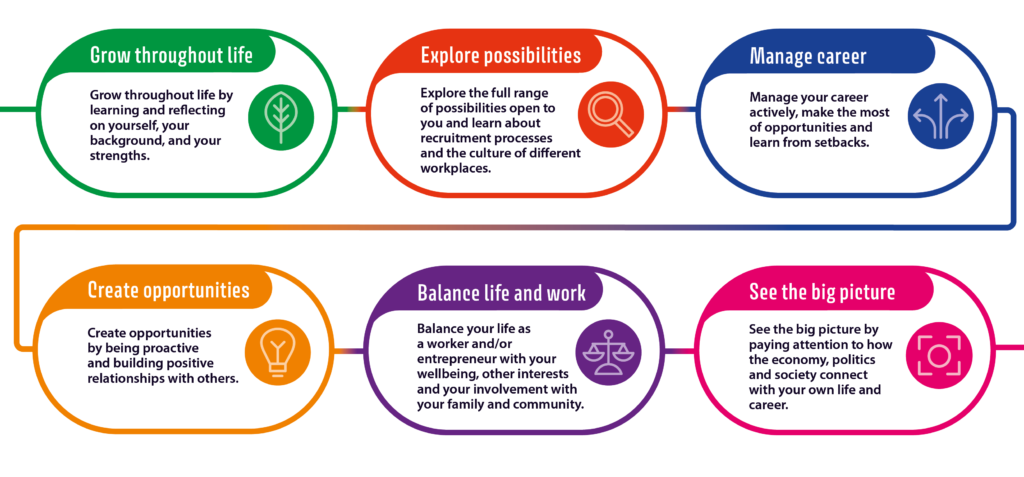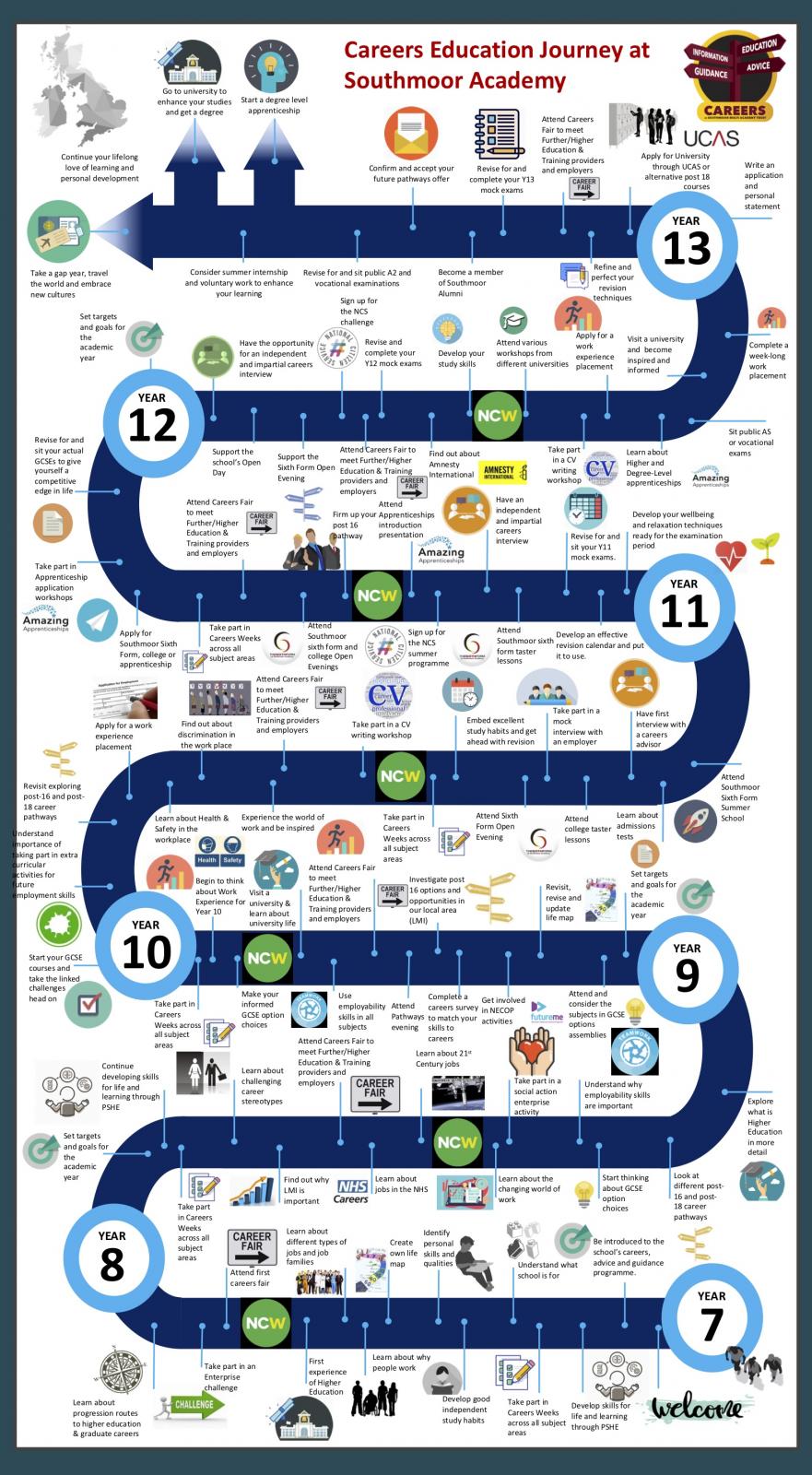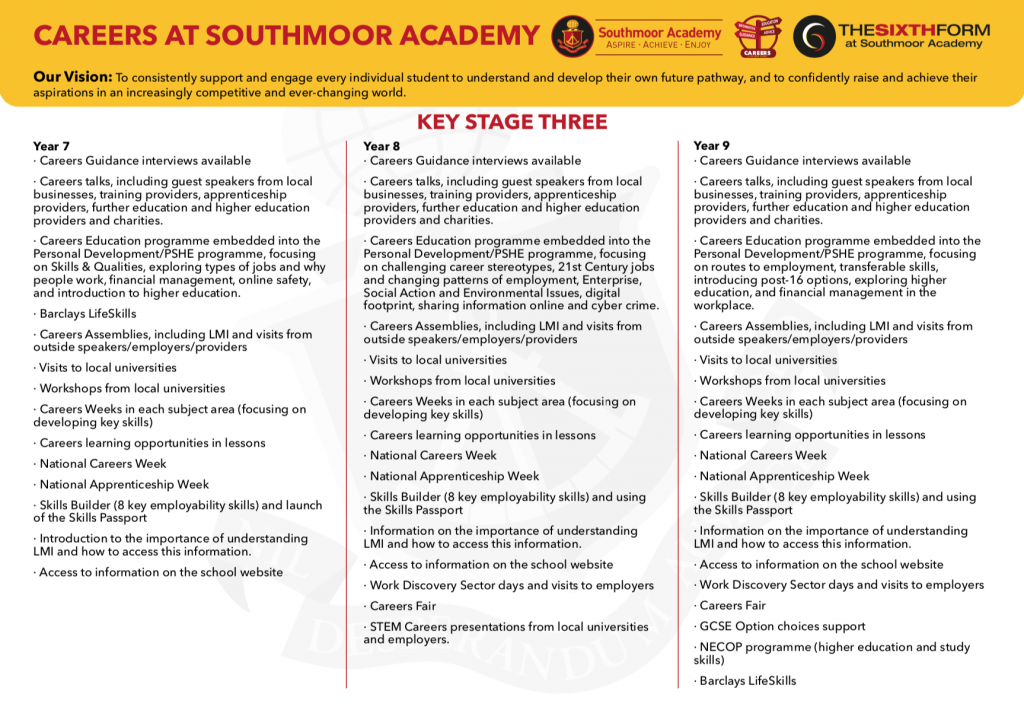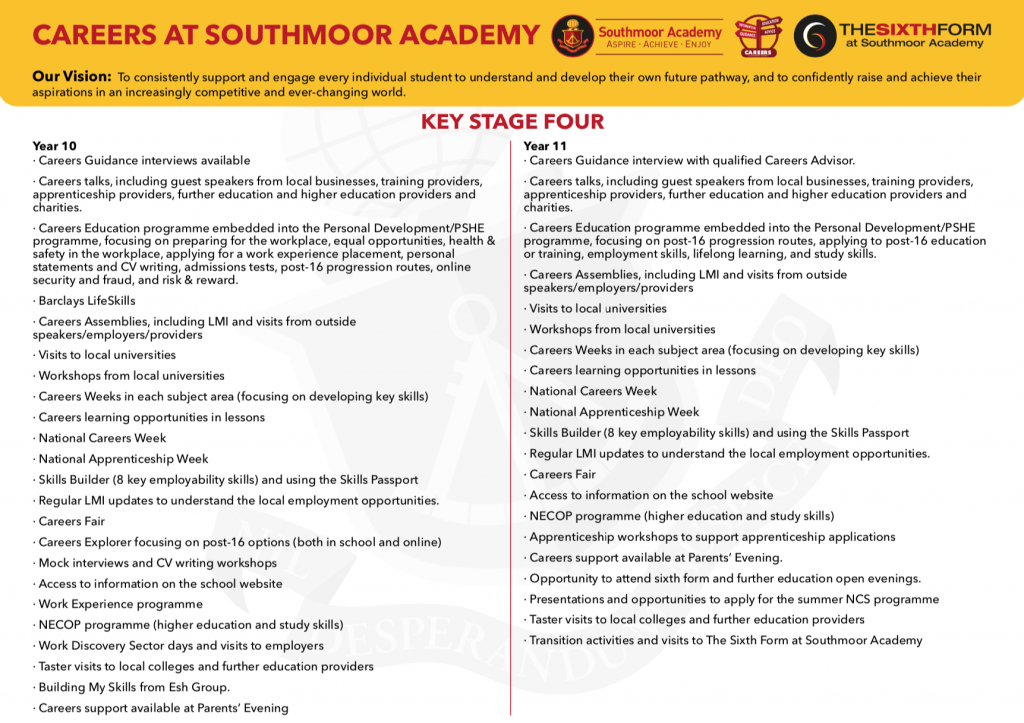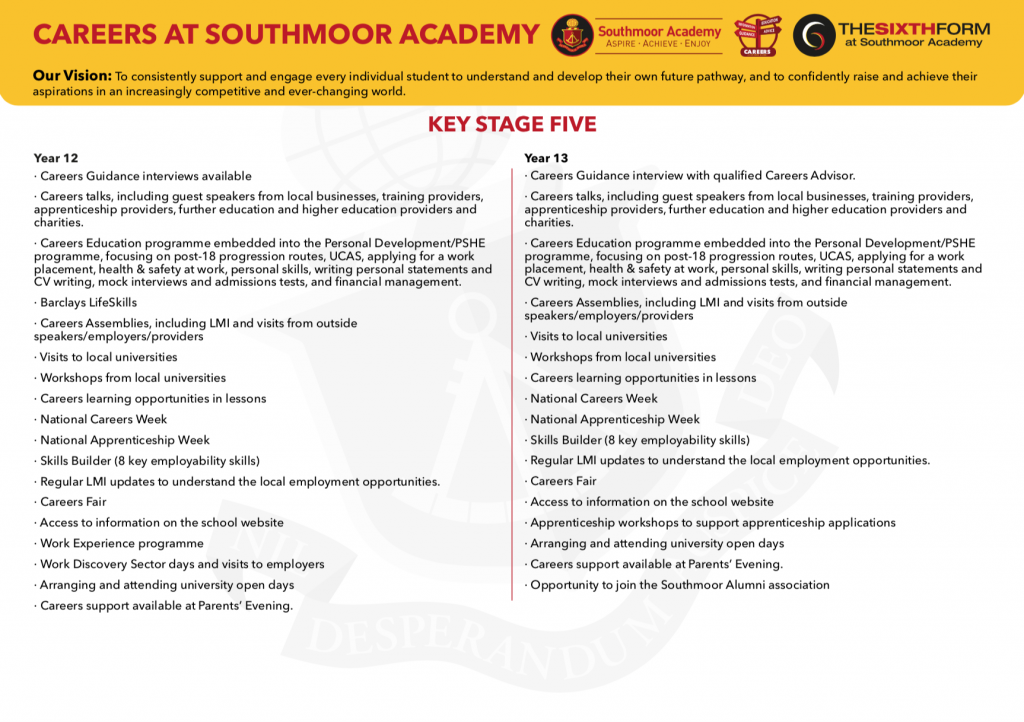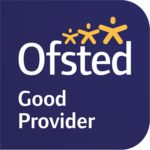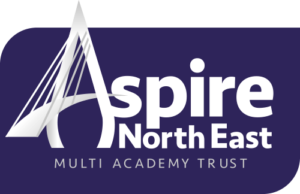Click here to read our Careers Strategy for 2024 – 2025
We have developed a broad and varied careers curriculum for students across all year groups. The aim is to create an atmosphere of awareness on career options from Year 7 forward, with an increasing focus on paths and further outcomes as our students enter their final Year at the Academy. A details table of what is offered for each keystage group and when can be found below.
Rationale
Southmoor Academy has a critical role to play in preparing our young people for the next stage of their education or training and beyond.
A young person’s career is their pathway through learning and work and we recognise that effective careers guidance contributes to raising aspirations, improving motivation and overcoming barriers to success and we are committed to achieving the inspiring IAG award
We have high expectations for all of our students, including for our most vulnerable and those with special educational needs and disabilities, so that every student is challenged appropriately and acquires the knowledge, skills and attitudes for lifelong learning which employers value. This will help every young person to realise their potential and enhance their employability.
Our Vision
- To prepare students for the ever changing opportunities, responsibilities and experiences of adult life and equip them with the skills to manage the choices, changes and transitions ahead of them
- To help students develop a positive self-image, increase self-confidence and raise personal aspirations
- To ensure that all students have an equal opportunity to develop the necessary skills, knowledge and awareness of the working world so that they are equipped with the ability to follow an individual chosen route to further education and employment in a career choice, which matches their aspirations in relation to their ability
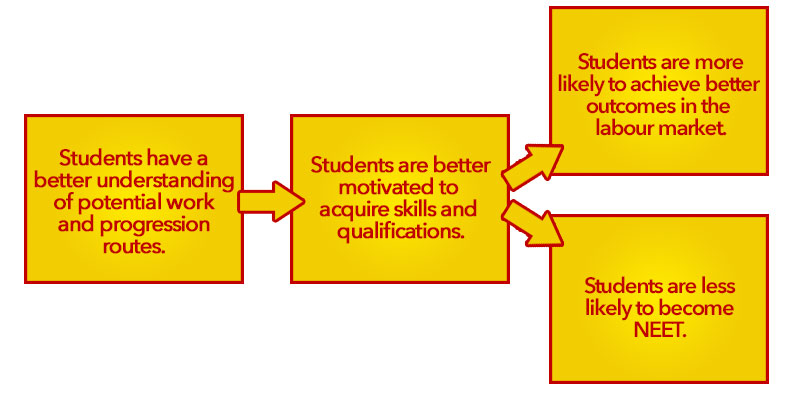
Inspiring IAG Quality Award Code of Practice
The Gatsby Benchmarks
Principles
CEIAG at Southmoor has four essential and interlinked elements:
- Careers education-planned programmes in the curriculum (Personal Development time) and planned cross-curricular opportunities, giving students the knowledge and skills to help them make informed decisions, plan and manage their own careers.
- Careers information- including options, employability skills, labour market information (LMI) and progression routes.
- Careers advice and guidance- Level 6 qualified specialist advisor helping students to identify future goals and plan the steps to achieve these career goals.
- Work related learning – experiences in/outside the curriculum to help students learn about economic well-being, careers and enterprise
Aims
The CEIAG programme is based on the core aims of the CDI Framework for Careers, Employability and Enterprise Education 7-19, 2021
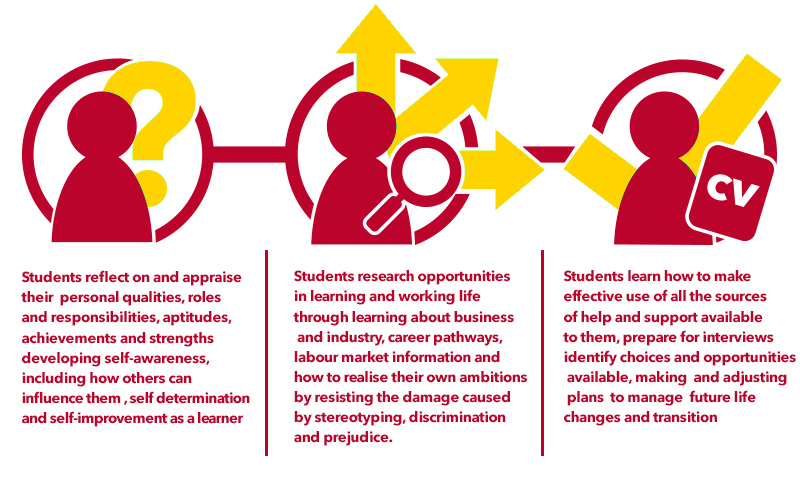
Monitoring and Evaluation
Our Careers Programme is continuously evaluated and monitored through the following methods:
- Compass report completed termly to show progress towards achieving Gatsby Benchmarks
- Completion of Quality in Careers Standard award annual reviews
- 3 year analysis of pupil destinations post-16 and post-18
- Pupil, staff and parent voice
- Termly meeting with link school governor/Enterprise Advisor and Enterprise Coordinator at the North East LEP
- Surveys and evaluations completed after Careers events and activities
Careers Learning Journey
Key Stage 3 Careers Summary
Key Stage 4 Careers Summary
Key Stage 5 Careers Summary
Destination Measures
2021-2022 School Data/Activity Survey
Key stage 4 |
||
| Key stage 4 2021/22 leavers – destination measures (activity in the year following key stage 4 completion) | ||
| Number | Percentage | |
| Number of pupils | 219 | |
| Pupils in education | 200 | 91% |
| Further education college or other further education provider | 81 | 41% |
| School sixth form – state funded | 113 | 57% |
| Sixth-form college – state funded | 0 | 0% |
| Other education destinations | 6 | 2% |
| Pupils in apprenticeships | 19 | 9% |
| Pupils not captured in education or apprenticeships / NEET | 0 | 0% |
16-18 school summary |
||
| Students who reached the end of 16 to 18 study in 2021/22 – destination measures (activity in the year following 16 to 18 institution attendance) | ||
| Approved qualifications | ||
| Number | Percentage | |
| Number of students | 91 | |
| Students in education | 69 | 76% |
| Higher education | 69 | 76% |
| Students in apprenticeships | 12 | 13% |
| Students in employment | 7 | 8% |
| Students not captured in education, apprenticeships or employment / NEET | 3 | 3% |
2020-2021 School Data/Activity Survey
Key stage 4 school summary |
||
| Key stage 4 2020/21 leavers – destination measures (activity in the year following key stage 4 completion) | ||
| Number | Percentage | |
| Number of pupils | 202 | |
| Pupils in education | 187 | 93% |
| Further education college or other further education provider | 92 | 49% |
| School sixth form – state funded | 86 | 46% |
| Sixth-form college – state funded | 0 | 0% |
| Other education destinations | 8 | 5% |
| Pupils in apprenticeships | 9 | 4% |
| Pupils not captured in education or apprenticeships /NEET | 6 | 3% |
16-18 school summary |
||
| Students who reached the end of 16 to 18 study in 2020/21 – destination measures (activity in the year following 16 to 18 institution attendance) | ||
| Approved qualifications | ||
| Number | Percentage | |
| Number of students | 110 | |
| Students in education | 96 | 87% |
| Higher education | 91 | 95% |
| Other education destinations | 5 | 5% |
| Students in apprenticeships | 4 | 4% |
| Students in employment | 5 | 5% |
| Students not captured in education, apprenticeships or employment / NEET | 5 | 4% |


